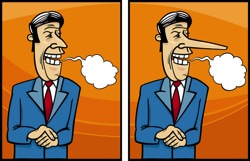Loser
 I think one of the most potent words in the English language is “Loser.” Whether it’s used pejoratively or not, it seems to convey the lowest of lows.
I think one of the most potent words in the English language is “Loser.” Whether it’s used pejoratively or not, it seems to convey the lowest of lows.
The Grasshopper checked in with a less stinging and more insightful definition. “Loser: One who is struggling against the flow of life.”
We’ve all struggled and the more we do, the more we lose.
I’m reminded once again about the remarks of the late comedian/actor, Jackie Gleason revealing a secret to life: “Be going out when the tide is going out and be coming in when it’s coming in. Anytime I did it differently, I paid the price.”
What is the flow of life? It’s what presents itself every moment – Reality. The flow of life is the flow of reality. Some days reality will flow our way; some days it won’t.
It’s too easy to say, “Go with the flow.” That’s a directive without direction. My suggestion is to begin to recognize when you are railing against reality; then you’ll know you’re going opposite to the flow.
Recognition that you are swimming against the tide is often enough to get you to stop struggling. The struggle is getting you nowhere. You are better served waiting for the tide to shift.
To know that you’re not in the flow is an asset that signals you to stop struggling (losing) and wait for a more opportune time to expend your energy.
Are you putting too much energy into losing? it’s a question worth asking and worth waiting for a response.
I think it’s this simple; If you are struggling against the flow, you are choosing to continue losing.
All the best,
John
Be Sociable, Share!

 Have you ever used the phrase, “We’re not on the same page”? Or how about, “We’re not singing out of the same hymn book”? Perhaps you’ve even said, “We’re not on the same frequency.”
Have you ever used the phrase, “We’re not on the same page”? Or how about, “We’re not singing out of the same hymn book”? Perhaps you’ve even said, “We’re not on the same frequency.” The Grasshopper had an interesting question the other day: “Who’s going to pay for your bad day?”
The Grasshopper had an interesting question the other day: “Who’s going to pay for your bad day?”
 It occurred to me recently that you can’t feel alive without feeling. That may seem obvious on first blush, but allow me to offer you the opportunity to get red in the face as often as possible.
It occurred to me recently that you can’t feel alive without feeling. That may seem obvious on first blush, but allow me to offer you the opportunity to get red in the face as often as possible. It occurred to me recently that one of life’s missions is “Learning to be you.” For me, it took a long time but the wait was worth it.
It occurred to me recently that one of life’s missions is “Learning to be you.” For me, it took a long time but the wait was worth it. The Grasshopper left me with just a phrase to contemplate over the weekend: “Flowery words, thorny deeds.” It got me to reflect.
The Grasshopper left me with just a phrase to contemplate over the weekend: “Flowery words, thorny deeds.” It got me to reflect. The Grasshopper has been on an anti-nose growth kick over the weekend. He is responsible for my weekly Grasshopper Note, the title of which is:
The Grasshopper has been on an anti-nose growth kick over the weekend. He is responsible for my weekly Grasshopper Note, the title of which is:  The Grasshopper popped in last night with this nugget for the New Year: “Getting it begins when denial ends.”
The Grasshopper popped in last night with this nugget for the New Year: “Getting it begins when denial ends.”